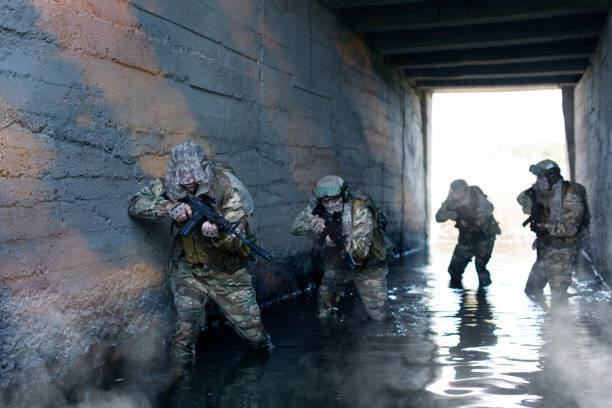NATO's Eastern Flank Security Concerns Rise Amidst Belarus' Potential Wagner Host
Lithuanian president Gitanas Nausėda warned that NATO will need to strengthen its eastern flank if Belarus becomes the new host of Wagner head Yevgeny Prigozhin. Following a state security council meeting on the mercenary group’s attempt to revolt against Russian military leadership, Nausėda said: If Prigozhin or part of the Wagner group ends up in Belarus with unclear plans and unclear intentions, it will only mean that we need to further strengthen the security of our eastern borders.
Lithuanian president Gitanas Nausėda warned that NATO will need to strengthen its eastern flank if Belarus becomes the new host of Wagner head Yevgeny Prigozhin. Following a state security council meeting on the mercenary group’s attempt to revolt against Russian military leadership, Nausėda said: If Prigozhin or part of the Wagner group ends up in Belarus with unclear plans and unclear intentions, it will only mean that we need to further strengthen the security of our eastern borders.
The president added that Lithuania was “following the situation closely and assessing the risks to our security”. Wagner leader Yevgeny Prigozhin has agreed to leave Russia and ordered his fighters to withdraw from Rostov and halt their march on Moscow, under the terms of a deal negotiated by Belarus. According to the agreement, Prigozhin will leave Russia and the Wagner group will be disarmed while at the same time its fighters will be relocated to Belarus. However, the details of the deal remain unclear.
Russian president Vladimir Putin has appeared on Russian state TV for the first time since the armed rebellion threatened to topple his regime, though the comments appear to have been recorded before the mutiny. Putin and his Belarusian counterpart Alexander Lukashenko spoke again by phone on Sunday morning, Belarus’ Belta news agency reported. The agency said the two leaders discussed “the situation in Ukraine” and “the need to de-escalate the conflict.
US spy agencies picked up information suggesting Wagner leader Yevgeny Prigozhin was planning to take action against Russia’s military leadership as early as mid-June, US media had reported. The warning was reportedly sent to the White House and other senior officials in the US government. According to the reports, US officials believe Prigozhin, a close ally of Russian president Vladimir Putin, was attempting to instigate a coup against the Russian military leadership.
Ukraine’s president, Volodymyr Zelenskiy, has said in his latest evening address that Russian president Vladimir Putin is “obviously very afraid” and “probably hiding”. Zelenskiy also said that he was “especially concerned” about the situation around the Zaporizhia nuclear power plant, which he said was threatened by the “occupation forces”.
He said: "The world must pay attention to the situation and demonstrate a principled response". All transport restrictions in Russia’s Rostov region – which was controlled by Wagner mutineers on Saturday - have been lifted, including those on highways, Russian news agencies reported on Sunday, citing local officials. The restrictions, which had been imposed in the region on Friday as part of an “anti-terror” operation. An adviser to the Ukrainian defense minister has described the Wagner rebellion in Russia as “the most ridiculous attempt at mutiny” ever.
The adviser, Yevhen Marchuk, told the Ukrainian news outlet Ukrayinska Pravda that the rebellion was “the most ridiculous attempt at a mutiny ever.” He said the Wagner mercenaries had “failed to reach the Kremlin, which was their goal” and added that the group had “failed to do anything”.




